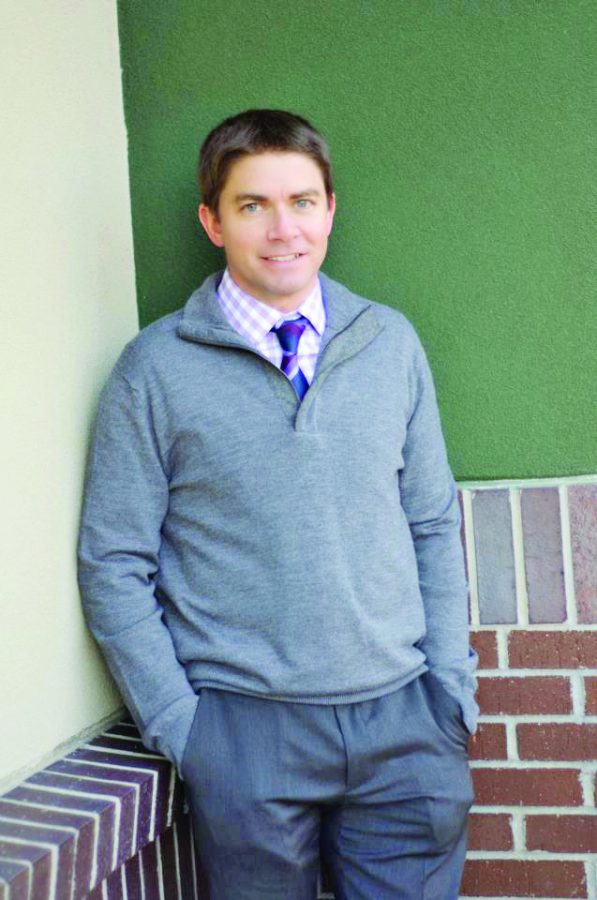From a young age, Michael LaRocca has sought the extraordinary. As a graduate of West Point, the United States Military Academy and Pepperdine University, LaRocca also served as an officer in the U.S. Army for five years and was recently named a Tillman Military Scholar.
“While I always strived to seek out the extraordinary, [I did] not necessarily want to be a die-hard soldier,” he said. “When I heard about West Point in high school, I recognized that place as more than ?just a college.”
Even though he majored in German at West Point, LaRocca said he felt he received the full spectrum of an education, ranging from intensive physical training to a rigorous academic curriculum, all the while honing discipline and gaining ?leadership experience.
“[When I first heard about West Point,] I figured the skills you get doing that would generalize very well to just about anything else I might do,” he said.
After LaRocca finished his undergraduate degree at West Point in 2002, he began his five years of service for the army. His first assignment was a year later as a lieutenant in South Korea, where he went through basic field training and learned how to lead a platoon. After a year there, he was stationed in Fort Irwin, California, before deploying to Iraq.
“It was definitely a very difficult deployment, because there were some who didn’t return in our unit, and I guess one of the other opportunities that I had was that I helped plan and then lead an … air assault on a suspected insurgence target, and that was a nighttime mission that involved more people than just my company, so that was probably the biggest tactical mission I had while I was there,” he said. “But for most of my time in my year in Iraq, it was a lot of management as the executive officer, so basically I was second in command to the troop commander.”
LaRocca is currently pursuing a doctoral degree in clinical psychology with a concentration in geropsychology, a branch of psychology which addresses mental health and age-related issues in older adults. His dissertation research, which is undergoing the institutional review board approval process, will focus on the roles that two variables, leadership and meaning, play in the development of psychological symptoms in military veterans. As a veteran himself, and having conducted research with older adults with dementia for his master’s degree at Pepperdine University, LaRocca said his research decision was a natural progression for him.
Forrest Scogin, a professor of psychology at The University of Alabama, has known LaRocca since his acceptance to the psychology graduate program in 2011. He will be chairing LaRocca’s dissertation, and said he had impeccable academic credentials when applying to the university.
“First off, it’s highly selective to get admitted into our clinical psychology program, so our graduate students in the clinical psychology program are really elite students, and Mike’s no exception,” Scogin said. “So he’s a very, very bright fellow.”
Michelle Hilgeman, clinical psychologist in the Research & Development Service at the Tuscaloosa VA Medical Center, met LaRocca last summer to discuss plans for his dissertation research.
“His dissertation work, which will likely begin in the fall, will involve interviewing combat veterans at the Tuscaloosa VA Medical center to learn more about their experiences,” Hilgeman said. “As part of his dissertation through the department of psychology, Mike will then analyze these data and submit them to a scientific journal so that other researchers can learn from his experience in these areas.”
Since Scogin has been present throughout LaRocca’s doctoral pursuit, he has seen changes in LaRocca’s approach towards and level of familiarity with his concentration in clinical psychology.
“From the time someone enters, to the point where he is … it’s a world of ?difference in terms of their knowledge level, their comfort with really complex psychological research and scholarly issues,” Scogin said. “It’s really quite a transformation to see that happen.”
This year, LaRocca received the Tillman Military Scholarship, an award given to military veterans and spouses who show “extraordinary academic and leadership potential” in honor of Pat Tillman, who left the NFL to serve after the attacks of 9/11 and was killed by friendly fire, according to the Pat Tillman Foundation. He said the scholarship will go towards partially covering his tuition for the year.
“I feel tremendously honored and privileged. It’s hard to describe just the honor of getting it,” he said. “I will try to represent the Tillman legacy very well, to the best of my ability.”
Scogin said that since LaRocca has been at the University, he has shown that he is very capable and very steady in the pursuit of his education, whether that be in developing his research or in teaching a Psychology 101 section on his own.
“I think it’s worth noting, his humility I think is really an outstanding feature that he has,” Scogin said. “Mike is very humble … he’s not all puffed up, and ?that’s endearing.”









